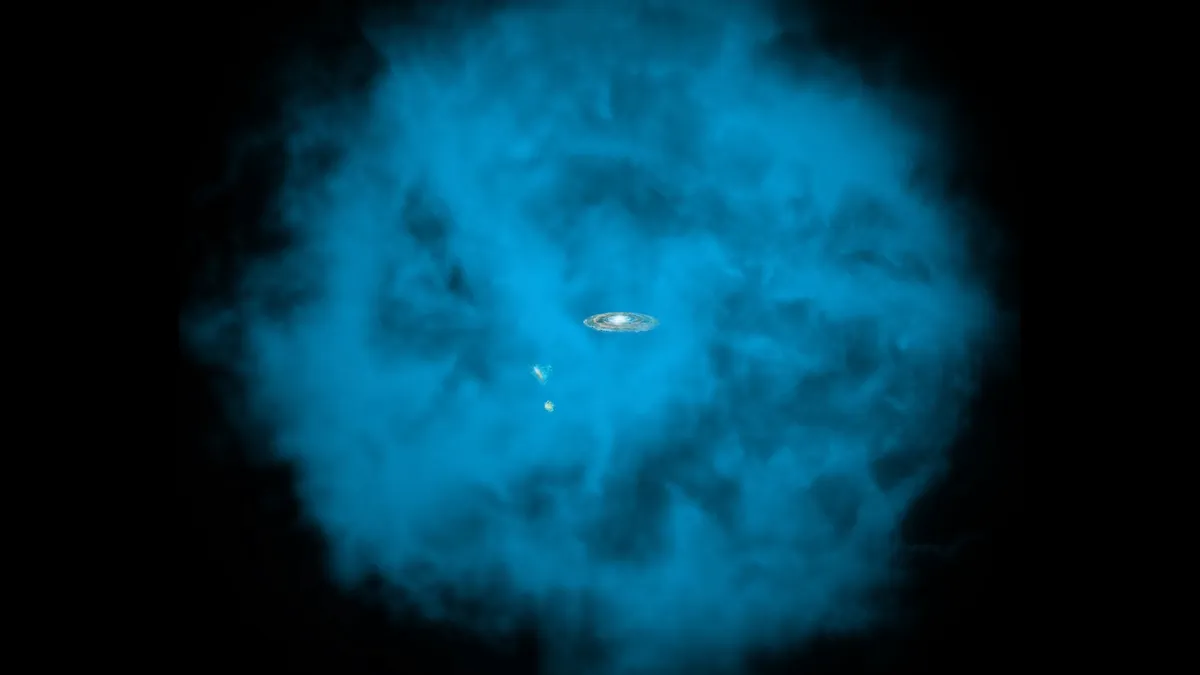
The universe's missing matter may have finally been identified, shedding light on a longstanding mystery in cosmology. Astronomers estimate that regular matter — the type that is not classified as dark matter — constitutes approximately 15% of the universe's overall mass. However, for years, scientists have grappled with the challenge of quantifying this matter, as nearly half of it has remained elusive, hidden from detection within stars, galaxies, and other visible cosmic structures.
Recently, a large, international team of researchers announced a groundbreaking discovery: the diffuse hydrogen gas surrounding most galaxies is far more extensive than previously believed. This newly observed hydrogen gas could potentially account for a majority of the universe's missing matter. According to study co-author Simone Ferraro, an astronomer at the University of California, Berkeley, the new measurements are consistent with the idea of locating all of this previously undetected gas. The study is currently available on the preprint server arXiv and is undergoing peer review for publication in the esteemed journal Physical Review Letters.
To investigate the elusive matter, the researchers utilized data from the Dark Energy Spectroscopic Instrument (DESI) located at Kitt Peak National Observatory in Arizona, as well as data from the Atacama Cosmology Telescope in Chile. Through DESI observations, the team analyzed images of approximately 7 million galaxies to measure the faint halos of ionized hydrogen gas found at the edges of these galaxies. These halos are typically too faint to be detected using conventional methods. Instead, the researchers measured how the gas affected the brightness of radiation from the cosmic microwave background, which is the residual radiation from the Big Bang permeating the universe.
In their findings, the team uncovered that the clouds of ionized hydrogen formed ethereal, nearly invisible filaments connecting galaxies. If this cosmic web indeed links most galaxies within the universe, it could easily span enough distance to account for the previously undetected matter. This new perspective on the cosmic structure may reshape our understanding of the universe as a whole.
This discovery could also revolutionize our comprehension of black hole behavior. Historically, scientists believed that the supermassive black holes at the centers of most galaxies only emitted jets of gas during their early life stages. However, the existence of such extensive diffuse gas clouds implies that these black holes might become active more frequently than previously assumed. One hypothesis posited by first study author Boryana Hadzhiyska, another astronomer at the University of California, Berkeley, is that black holes operate in a "duty cycle," turning on and off at various intervals.
As a next step, researchers aim to incorporate these new measurements into existing cosmological models. Hadzhiyska expressed that there is significant interest in utilizing their findings for a detailed analysis that includes this newly discovered gas. This collaborative effort could lead to a more comprehensive understanding of the universe's structure and the nature of its missing matter.